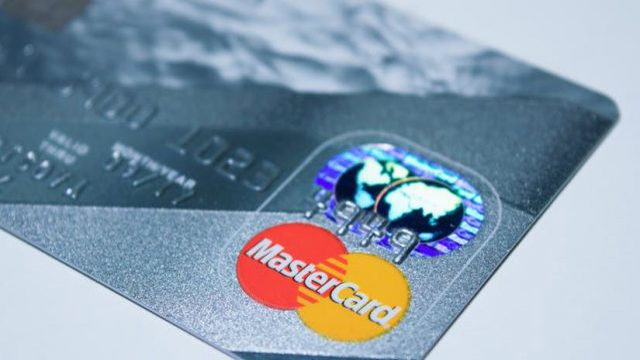Advertiser Disclosure
How To Get Approved For A Credit Card
Updated On November 1, 2021
Editorial Note: This content is based solely on the author's opinions and is not provided, approved, endorsed or reviewed by any financial institution or partner.

What is the best way how to get approved for a credit card?
If you want to know how to get approved for a credit score, you need to plan accordingly. While applying for a credit card is easy, there is no guaranteed credit card approval. However, here are 5 steps to take so you maximize your chances to get approved for a credit card:
1. Understand your credit score
Your credit score is one of the most important components that help you to get approved for a credit card. The major credit bureaus will evaluate your financial responsibility and borrower risk, which can determine whether you get approved for credit cards, student loan refinance, auto loans, personal loans and mortgages.
There are three major credit bureaus that evaluate your credit score. The three major credit bureaus are Experian, Equifax and TransUnion. These credit bureaus will calculate a three-digit credit score for you based on your credit worthiness. The most common credit score is called the FICO credit score, which ranges from 300-850.The higher your credit score, the better chance you can get approved for a credit card.
This table can help you see if your credit score is considered good or bad, and see your chances to get approved for a credit card:
FICO Scores and Credit Ratings
There is a separate credit model known as the Vantage Score model, which was developed by the three credit bureaus to compete with the FICO model.
2. Understand how your credit score is calculated
In addition to knowing your credit score, it is important to understand how your credit score is calculated. When you understand how your credit score is calculated, you will be in a better position to know how to get approved for a credit card.
Here is the breakdown and components that generate your FICO score:
FICO Score Breakdown
The sooner you focus your financial habits around these 5 categories, the sooner your credit score will increase. A higher credit score can help you get approved for a credit card.
3. Make on-time payments
Make sure to make all your payments on time for all your debt obligations. As you can see from the FICO breakdown, your payment history is the top component of your credit score. When you make on-time payments in full, you demonstrate to lenders, financial institutions and credit bureaus that you are a responsible borrower who will repay your debt obligations. Similarly, do not miss any payments because that will hurt your credit score.
4. Reduce your debt outstanding
If you’re hoping for guaranteed credit card approval, your best bet is to keep your debt outstanding low.If you have less debt, credit card companies view this as a positive because you have fewer debt obligations to repay. It is ok to have other debt outstanding, as most people have a student loan, auto loan, mortgage or personal loan outstanding in addition to a credit card.
Your credit score also evaluates credit utilization. Credit utilization is the percentage of your debt outstanding compared to your total credit outstanding. For example, if you have a $5,000 credit card balance and a $10,000 credit line, then your credit card utilization is 50% (=$5,000 / $10,000).Try to keep your credit card utilization as low as possible, typically below 30%. Therefore, you do not want to max your credit cards.
If you have outstanding credit card debt, you should consolidate credit card debt with a low interest personal loan. A personal loan can help you save money with a lower interest rate and also diversify your credit mix.
5. Minimize your debt-to-income ratio
Another way how to get approved for a credit card is to minimize your debt-to-income ratio. As its name suggests, a debt-to-income ratio is the amount of all your debt expressed as a percentage of your total income. Your debt includes your monthly debt payments from all debt sources such as student loans, credit cards, personal loans, auto loans and mortgages. Your income is your monthly income from all sources, including your salary, investments and dividends, for example. There are two ways to lower your debt-to-income ratio.You can either increase your income or lower your debt, or both.
6. Compare the best credit card offers
There are many options if you want to get approved for a credit card.
There are rewards cards such as cash back cards and travel rewards cards that help you earn rewards for every dollar you spend. Want cash back in your pocket or free hotel nights and free flights? Then, cash back credit cards and travel rewards cards could be best for you.
If you have existing credit card debt, then you may want to compare 0 percent APR cards. Balance transfer credit cards help you transfer your credit card balance to a new credit card, often with 0% APR interest for a certain time. With 0 percent APR cards, you have time to manage your credit card debt and work to pay it off faster without paying interest for a certain time.
At Mentor, you can compare credit cards and find the right credit card for you based on your personal preferences.
What’s the easiest credit card to get approved for?
It would be ideal if there was one, single credit card that was the easiest credit card to get approved for. If you have strong credit and income, you will likely have several credit cards to choose from such as rewards credit cards and cash back credit cards.
What if you have bad credit? It would also be ideal if there was an instant approval credit card for bad credit. While there are no 100% guaranteed credit card approvals, you do have options. If you have bad credit, the closest thing to guaranteed credit card approval is a secured credit card.
A secured credit card is the easiest credit card to get approved for if you have bad credit. With secured credit cards, credit card companies will request a security deposit equal to your credit line. For example, many credit cards for bad credit require a security deposit from $200 – $1,000. If you have bad credit, a secured credit card is the easiest credit card to get approved for because of the security deposit. A security deposit provides comfort to the credit card company to show you are a less risky customer. If you do not pay your credit card balance, the credit card company can draw on your security deposit to ensure your credit card balance is repaid.
Secured credit cards can help you build credit. One of the best ways to establish credit and improve your credit score is to make on-time payments and pay in full. Over time, with good financial habits, you can increase your credit line and even qualify for rewards credit cards and cash back credit cards.
At Mentor, you can compare the best-secured credit cards and best credit cards for bad credit.
How is your credit score calculated?
Based on the FICO credit model, there are several major components to calculate your credit score. Your outstanding debt, missed and late payments and account delinquency can also factor into your credit score. The sooner you establish credit and have good financial habits, the sooner your credit score can increase.
FICO Score Breakdown
These are the categories that comprise your credit score. If you want to know how to get approved for a credit card, focus on these areas starting with payment history and credit utilization as the two major categories.
How do you apply for the best credit cards for bad credit?
When it comes to the best cards for bad credit, there are some clear steps to take to get approved for the best credit cards for poor credit. Here are some to keep in mind:
1. Start with secured credit cards
You will need to put down a security deposit, but secured credit cards are a great tool to build credit. Plus, they are easier to get approved for than unsecured credit cards.
2. Know your credit score
Your credit score is the key to your financial future. With credit cards for poor credit, you can assess which cards match your credit profile. This way, when you apply for credit cards for people with bad credit, you will know which ones you are likely to be approved for.
3. Skip rewards credit cards
If you are wondering how to get a credit card with bad credit, your best bet is to avoid rewards credit cards. Focus on the best credit cards for poor credit. Once you rebuild credit, you can broaden your credit cards by applying for rewards credit cards.
What not to do when you apply for credit cards
If you want to know how to get approved for a credit card, make sure to avoid these 10 things:
1. Fail to check your credit report for errors
How it hurts you: If you don’t check your credit report for inaccuracies, then you are not applying with your best foot forward. A correct credit report is essential if you want to get approved for a credit card.
2. Open multiple credit accounts at once
How it hurts you: Credit bureaus don’t want to see you open multiple credit accounts at once. If you need multiple types of credit, there is no problem in opening multiple accounts. It is typical to have installment loans such as personal loans and student loans as well as revolving credit such as credit cards. Just don’t open too many at once.
3. Close multiple credit accounts at once
How it hurts you: Similar to opening multiple credit accounts at once, you don’t want to close multiple credit accounts at once. One component of your FICO score is your average account age, which measures how long your accounts have been open and active. The longer your average account age, the better for your credit score.
4. Keep a high credit utilization ratio
How it hurts you: Your ability to manage your debt outstanding relative to your credit limit matters to credit bureaus. Be responsible and maintain a low credit utilization ratio that indicates you are a responsible borrower.
5. Fail to pay your monthly balance
How it hurts you: When it comes to your credit score, your payment history is top priority. Always pay your balance in full each month. Otherwise, interest will be charged and it will adversely impact your payment history.
6. Miss payments
How it hurts you: Similar to paying in full, you should make on-time payments each month. Don’t skip any payments because it shows you are not responsible with borrowing and repayment. Lenders may also believe you cannot be trusted to repay your debt obligations.
7. Fail to have any credit
How it hurts you: Your goal should be to build credit and establish a credit history. A strong credit profile will help you obtain financial products and can be reviewed by prospective employers and landlords. While you shouldn’t borrow debt for the sake of borrowing, having access to credit that you repay in a timely manner can help improve your credit score.
8. Fail to diversify your credit mix
How it hurts you: Credit bureaus like to see that you have a diverse credit mix. This means that you have a mixture of installment loans such as student loans and personal loans that you pay back monthly. Credit bureaus also like to see you can pay revolving credit of varying amounts each month. The more that you repay your balances in full each month and on time, the more trust lenders and financial institutions will place in you.
9. Fail to be honest on a financial application
How it hurts you: Always ensure that the financial information that you provide on a credit card application reflects your accurate income, debt and other pertinent information. Your credit profile can be adversely impacted if you provide a fraudulent application, which can restrict your access to credit.
10. Fail to improve your credit score
How it hurts you: If you have excellent credit, you will have your choice of credit cards from cash back cards to rewards cards. However, with bad credit or no credit, it is important you work to raise your credit score. You can take proactive steps to increase your chances for credit card approval. Now that you know how to get approved for a credit card, you can work to make on-time payments, limit your debt-to-income, minimize your credit utilization, diversify your credit mix and increase your account age, among other strategies.
Are there instant approval credit cards for bad credit?
If you are looking for instant approval credit cards for bad credit, there are several things to know about instant approval cards:
1. What are instant approval credit cards?
Instant approval credit cards are credit cards in which you apply for a credit card online and you can receive an approval decision within minutes. Instant approval credit cards are good for people who need a decision quickly for access to credit for an immediate purchase such as travel or an emergency – or for people who just want to know whether they are approved. Once approved, it may take several days for your credit card to arrive in the mail.
2. How do you get approved for instant approval credit cards?
You can apply online directly for a credit card. When you apply for a credit card online, the credit card company will check your credit. The stronger your credit, the higher likelihood that you will be approved for instant approval credit cards. You may be approved for instant approval credit cards for bad credit, but it may depend on other factors such as your monthly cash flow and debt-to-income ratio, among other factors.
3. What should you know before your apply for instant approval credit cards?While it is hard get guaranteed credit card approval, having good to excellent credit can certainly help you get approved for a credit card. You should compare credit cards to find the right credit card for you. If you are looking for instant approval credit cards for bad credit or looking for the best student cards if you have no credit, you can still get approved for instant approval credit cards such as secured credit cards.



